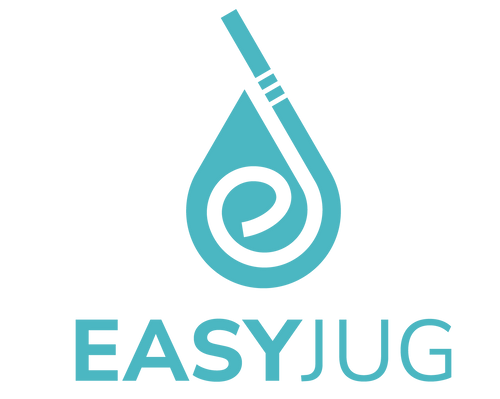Introduction
As an expectant mother, you’re embarking on a miraculous journey, one that is both exhilarating and demanding. The support you choose during this time can significantly shape your birth experience. Whether you're considering a hospital, birth center, or a home birth, understanding the differences between a birth doula and a certified nurse midwife (CNM) can empower you to make the best decision for your prenatal care and postpartum period.
The Role of a Birth Doula
A birth doula provides continuous emotional support, physical support, and informational support throughout your pregnancy, birthing process, and postpartum period. Doulas are trained professionals, often certified by organizations like DONA International, who are dedicated to helping expectant mothers craft their birth plan and ensuring it's followed as closely as possible in the hospital setting or during a home birth.
Doulas do not have medical training like midwives; their primary role is to advocate for the birthing person, offering comfort measures, reassurance, and advice on non-medical matters. For many new parents, a doula is a cornerstone of their birth experience, helping to navigate the challenges of both low-risk pregnancies and more complicated birthing scenarios.
The Specific Tasks of a Birth Doula: A Guide for Expectant Parents
When envisioning your birth experience, you may consider the roles that various health professionals will play. One such key player is the birth doula, a trained individual who provides continuous support to pregnant people before, during, and after childbirth. Let's dive into the specific tasks that a doula will perform

Before Labor
A birth doula is instrumental during prenatal visits, offering guidance and childbirth education to expectant parents. They work alongside healthcare professional teams, offering insights into pain relief options, including natural birth techniques and information on medical interventions.
During Labor
Whether you’re facing a high-risk pregnancy or aiming for an unmedicated birth, a labor doula provides continuous support. From offering different positions to help ease labor pains to delivery support in the delivery room, a doula is a support person through every contraction and breath.
For those who desire a natural birth, a doula provides pain relief techniques such as breathing exercises, pressure points, and emotional reassurance. They're also there to work in tandem with registered nurses, professional midwives, and the entire birthing team to support the laboring woman's needs, whether she opts for pain medication or not.
A labor doula can also assist in cases where the family member or birth partner needs guidance on how to support the pregnant woman. Their presence is a source of comfort, providing reassurance that someone knowledgeable is always by your side.
After the Birth
Postpartum support is another critical aspect of doula care. After the newborn care has commenced, doulas can help with postpartum depression, breastfeeding, and adjusting to the new family dynamic. They are often involved in the postnatal period, ensuring that new mothers have the resources and support they need to recover from the birth process. They may help with cooking and providing nourishing meals, preparing sitz baths, or gentle massages. They may also help with basic chores around the house to help ease the workload of parents.

The Expertise of a Certified Nurse Midwife
Certified nurse midwives, accredited by the American Midwifery Certification Board, bring a different type of support to your birth journey. With a bachelor's or master's degree in nursing and an additional specialization in midwifery, CNMs provide a broad scope of practice that includes medical advice, prenatal care, delivering babies, and managing some high-risk conditions.
In the United States, midwives are recognized as autonomous healthcare providers who can offer a safe alternative to traditional obstetric care, particularly for low-risk pregnancies. They play a crucial role in the healthcare system and are known for promoting natural childbirth options, supporting breastfeeding, and providing comprehensive postpartum care.
The Benefits of Midwifery Care for Pregnant Women
Navigating the journey of pregnancy and childbirth is a profound experience, and choosing the right healthcare provider is paramount. Midwives, as certified medical professionals with specialized training—often including a bachelor’s degree, a nursing degree, or a graduate degree in midwifery—are equipped to offer comprehensive pregnancy care and labor support.
Let’s explore the manifold benefits of midwifery care:
Personalized Care
Midwives are renowned for their personalized approach to care. They often operate in private practice or as part of a medical care providers team, offering one-on-one attention and tailored birth control counseling, prenatal care, and labor support. This individualized care can lead to more positive childbirth experiences for pregnant women, especially during active labor.
Education and Collaboration
With advanced practice degrees and certification from organizations like the American College of Nurse-Midwives and the North American Registry of Midwives, midwives are well-versed in women’s reproductive health. They educate expectant mothers on various aspects of pregnancy, from physical exams to the birthing process, empowering them to make informed decisions.

Out-of-Hospital Births and High-Risk Pregnancies
Certified nurse-midwives (CNMs) and certified midwives (CMs) are trained medical professionals capable of providing labor support for out-of-hospital births and managing high-risk pregnancies. Their expertise is not limited to low-risk situations; they are adept at recognizing complications early and collaborating with medical doctors when necessary.
Comprehensive Support
Midwifery care encompasses a full spectrum of support, rivaling the assistance provided by different types of doulas. From initial pregnancy care to postpartum support, midwives offer a continuity of care. They perform essential medical tasks, assist with delivery, and provide follow-up care, ensuring the health and well-being of both the mother and the newborn.
Collaborative Practice
Midwives often collaborate with a wider healthcare team, including registered nurses, certified doulas, and other healthcare professionals. This team-oriented approach can be particularly beneficial in high-risk or unexpected situations, ensuring that every available resource is provided for the mother's and baby's safety.
Holistic Approach
Midwives are advocates for natural birth and often support methods that promote a woman's innate ability to give birth. However, they are also fully equipped to administer medications and perform interventions if desired or necessary, showcasing their adaptability to different ways and preferences of birthing.

Health Insurance Coverage for Doulas and Midwives
When it comes to the coverage of birthing support and care, health insurance policies can vary greatly. Understanding whether your policy includes services provided by full-spectrum doulas, certified midwives, or certified nurse-midwives is crucial for expectant parents navigating the financial aspects of prenatal, labor, and postpartum care.
Midwife Services
Many health insurance plans recognize the valuable role that trained medical professionals, such as certified nurse-midwives (CNMs) and certified midwives (CMs), play in maternal and newborn care. These providers have completed rigorous midwifery education programs and are often registered nurses or have met equivalent qualifications. Due to their comprehensive medical training and ability to work alongside medical doctors and medical staff, insurance providers may cover midwifery services, especially when they are part of a hospital or clinic’s delivery team.
Midwives can provide care for both low-risk and high-risk pregnancies, and they are skilled in delivering babies in various settings. The good news is that if a midwife is licensed in your state and they provide services either in a hospital or in collaboration with a medical doctor, health insurance is more likely to cover their services.
Doula Services
Full-spectrum doulas offer continuous support throughout pregnancy, labor, and the postpartum period but are not medically trained like nurse-midwives or delivery nurses. Since doulas are not providing medical care, historically, their services have not been routinely covered by health insurance plans. However, there's a growing recognition of the benefits that doulas provide, leading some insurers to start offering reimbursement for doula care, acknowledging the potential for improved birth outcomes and reduced medical interventions.
It’s essential to check with your health insurance provider to understand your policy. Some insurers may cover doula services under a wellness or maternity benefit, especially if they see a doula as a preventive measure that could reduce the need for more costly medical interventions during childbirth.
Navigating Insurance Policies
To navigate your health insurance policy effectively, it's advised to speak directly with your provider and ask specific questions about what types of midwifery and doula care are covered. Some policies may require a referral from a primary care physician or an obstetrician to cover the services of a midwife. Others may reimburse a portion of the cost if the midwife is considered an out-of-network provider.

Doulas and Midwives as Advocates for Women's Health: Nutrition and Hydration During Labor and Postpartum
Doulas and midwives are not only invaluable during the childbirth process but also serve as staunch advocates for the overall health and well-being of women, particularly in terms of nutrition and hydration during labor and postpartum.
Nutrition and Hydration During Labor
Midwives, with their in-depth understanding of the birthing process, often encourage pregnant women to maintain a balanced diet leading up to and during labor. They are well-versed in how proper nutrition can impact energy levels and stamina, which are crucial during active labor. Midwives may suggest easily digestible foods and snacks that can provide a quick energy boost without causing discomfort.
Doulas, while not medical professionals, understand the physical demands of labor and advocate for the mother's right to eat and drink as needed. They work alongside healthcare providers to ensure that the laboring woman's preferences for nutrition are respected. Both doulas and midwives aim to create a birth plan that includes the mother's wishes regarding food and hydration, advocating for their right to choose what's best for their bodies during labor.
Postpartum Nutrition and Hydration
After delivery, midwives continue to play a critical role by monitoring the mother's recovery and advising on optimal postpartum nutrition to aid in healing and to support breastfeeding, if chosen. They may provide resources or referrals to nutritionists to ensure that new mothers are getting the necessary nutrients to recover from childbirth and to produce nutrient-rich breastmilk.
Doulas offer continuous support postpartum, helping new mothers navigate the often challenging early days of motherhood. They can provide valuable support by encouraging regular hydration and nutritious meals, which is essential for energy restoration and overall health. Full-spectrum doulas who offer postpartum services may also assist with meal preparation and hydration reminders, ensuring that new mothers are well-nourished and hydrated.

Hydration Innovation: Why Doulas and Midwives Recommend EasyJug for Breastfeeding Moms
Doulas and midwives, champions of maternal care, recognize the vital role of hydration in postpartum recovery and breastfeeding. EasyJug emerges as their recommended solution, offering handsfree hydration that aligns perfectly with the needs of nursing mothers.
Doulas and midwives are dedicated to supporting mothers through the childbirth and postpartum process, often advocating for practices that enhance the well-being of both mother and baby. EasyJug presents itself as a valuable tool in their toolkit for the following reasons:
-
Hands-Free Hydration: EasyJug features a 47-inch long straw that allows mothers to hydrate without using their hands, which is particularly useful during labor, postpartum recovery, and breastfeeding sessions. This hands-free approach aligns with the comfort and convenience that doulas and midwives strive to provide for new mothers.
-
Large Capacity for Hydration: With a 2.2-liter reservoir, EasyJug minimizes the need for frequent refills. This is crucial for breastfeeding mothers who need to stay well-hydrated to maintain a healthy milk supply, a point of emphasis for both doulas and midwives in postnatal care.
-
BPA-Free and Phthalate-Free: Safety is a top concern for doulas and midwives, and EasyJug's commitment to being BPA-free and phthalate-free means that the product is non-toxic and safe for both mother and baby.
-
Ease of Use During Night Feedings: EasyJug is particularly innovative for night-time breastfeeding. It allows mothers to drink while they lie down creating a comfortable and relaxing experience while they are up throughout the night breastfeeding.
As you meticulously prepare for the arrival of your little one, remember to pack the EasyJug in your hospital bag. This innovative, handsfree hydration solution ensures that as you navigate the initial steps of motherhood, you're well-hydrated and ready for the beautiful journey of breastfeeding your newborn with ease and comfort. Make EasyJug a part of your birthing experience to embrace the postpartum period with one less worry and one more supportive ally by your side.

Choosing What’s Best for You
Deciding between a doula and a midwife comes down to understanding the different roles each professional plays. If you’re looking for specialized medical care and guidance throughout your pregnancy, a certified nurse midwife may be the ideal choice. On the other hand, if your focus is on having personalized support to enhance your birthing experience, a birth doula could be the perfect addition to your team.
Conclusion
As you prepare for the arrival of your new baby, remember that whether you choose a doula, a midwife, or both, your comfort and well-being are paramount. Consider visiting both birth centers and talking to different types of midwives and postpartum doulas to see who aligns with your vision for your birth. In the end, the best choice is the one that makes you feel supported, empowered, and confident as you step into the role of a mother.
Community & Support
We know the beautiful chaos of motherhood – the endless feedings, diaper changes, and sleepless nights. Amidst all this love and care, it's easy to forget about your own well-being. That's where EasyJug steps in – to make hydration a breeze for you.
Join our community of nurturing mothers and prioritize your health with EasyJug. Sign up now to receive exclusive tips on staying hydrated during your breastfeeding journey, along with special offers just for you.
Because when you take care of yourself, you can give your little one the best version of you. Let's hydrate together and thrive as moms!



